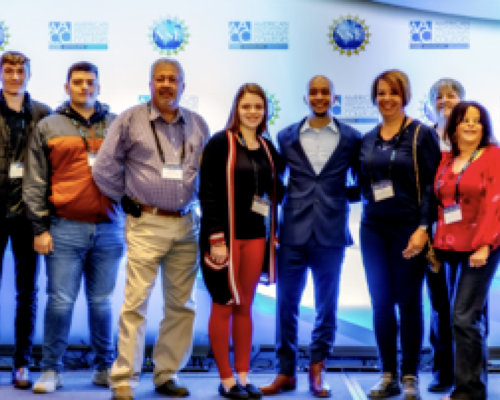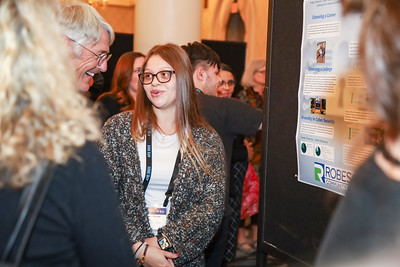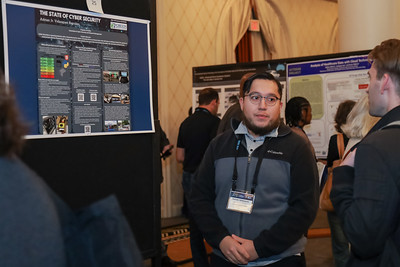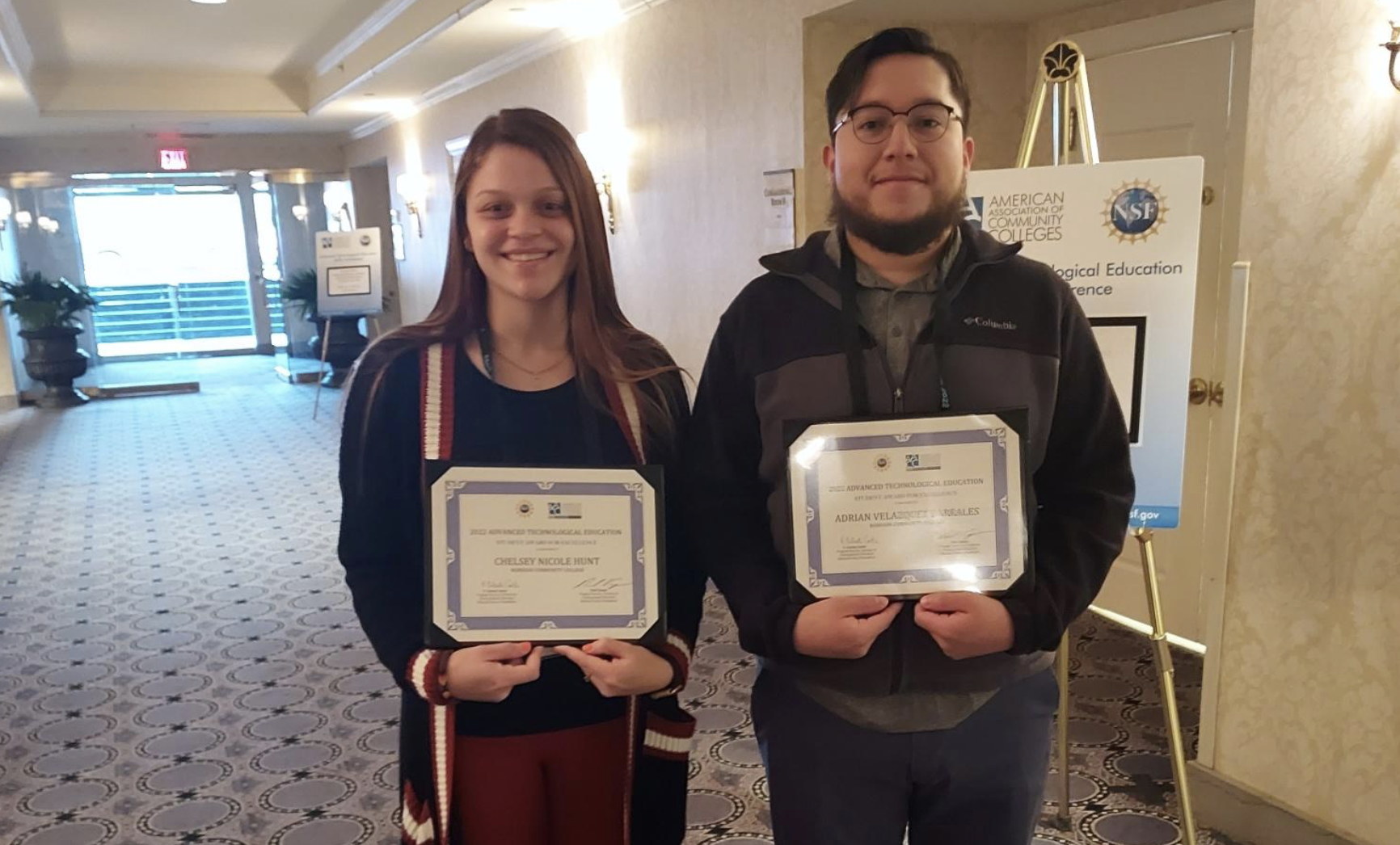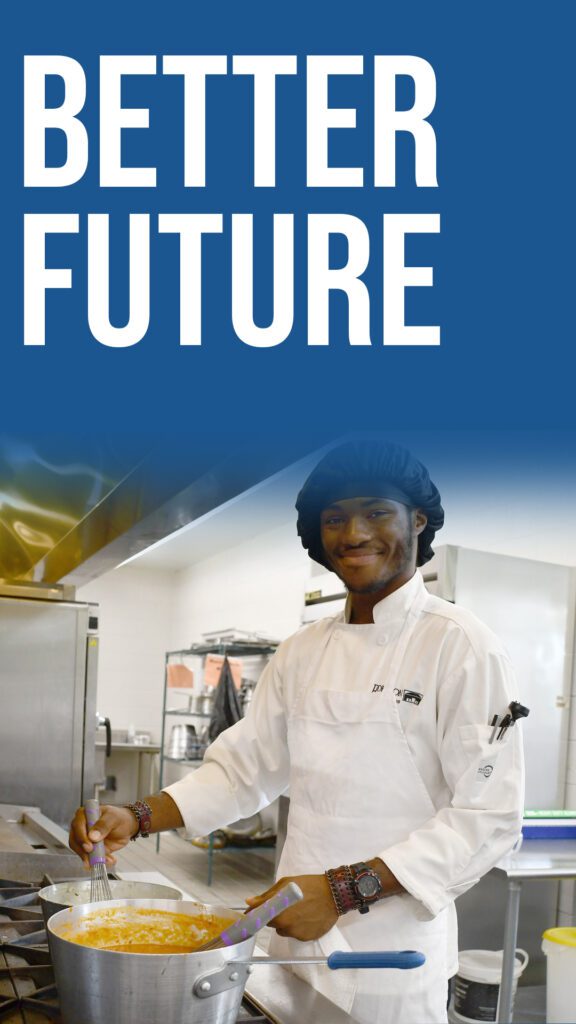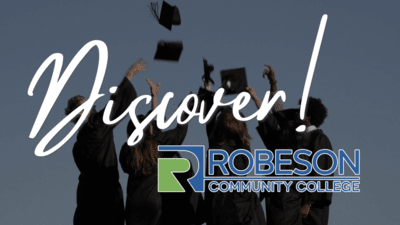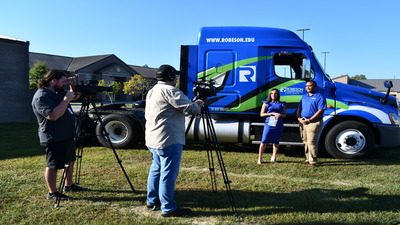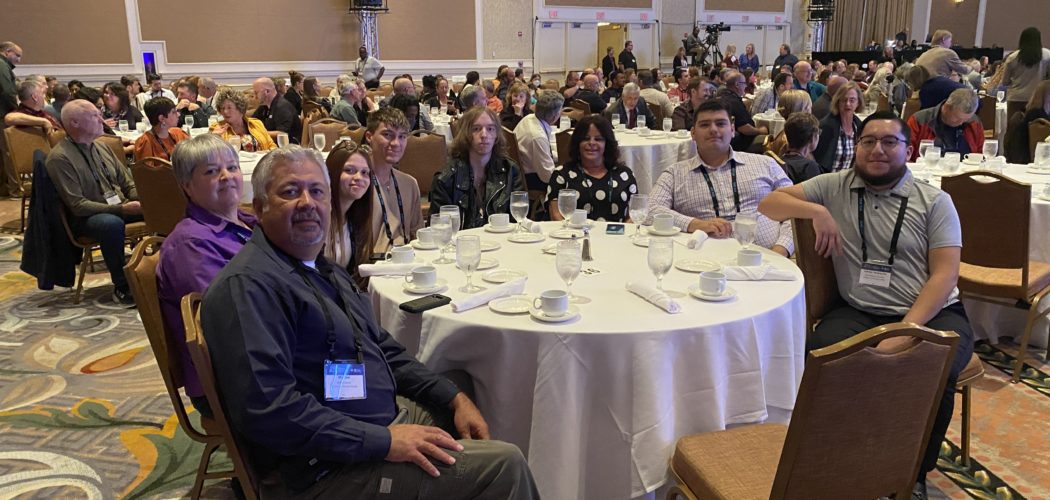
RCC Cybersecurity students, faculty ‘Seize the Moment’ in Washington DC
The end of October was a time for cybersecurity students and faculty at Robeson Community College to ‘seize the moment’ as they traveled to Washington, D.C. for the 2022 Advanced Technological Education (ATE) Principal Investigators’ Conference, which focused on reconnecting and advancing the skilled technical workforce.
The trip was made possible through the RCC CyberConnect Grant funded by the National Science Foundation – Advanced Technological Education (NSF-ATE) Grant #2100012.
RCC students Adrian Velazquez Barrales, Chelsey Hunt, Benjamin Castrejon Sanchez, Matthew Furmage, and Seth Bullard attended the event with RCC Instructors Michael Jacobs and Loretta Allen, and staff members Lisa Steffes, the grant coordinator, and Lisa Hunt, the director of grants and special programs.
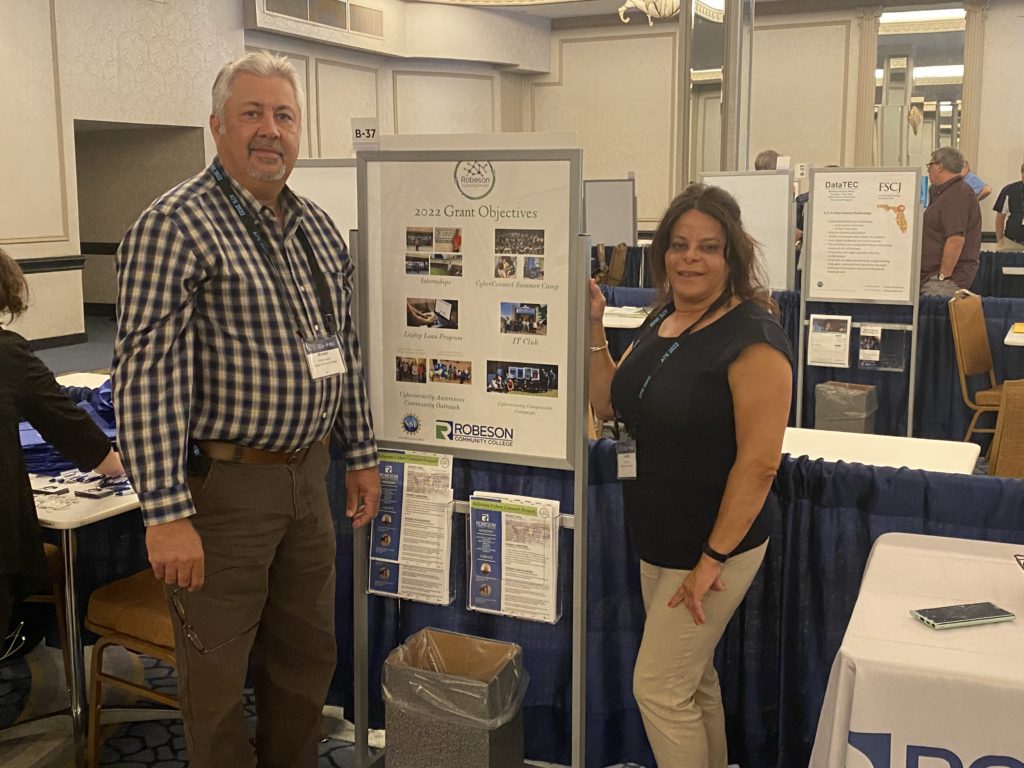
RCC Instructors Michael Jacobs, left, and Loretta Allen, right, stand at their booth during the 2022 National ATE Conference in Washington, DC.
Michael Jacobs is the principal investigator of the grant.
“I am proud of us being there, being we are a small school, but I found out we are way ahead,” said Jacobs. “We have a cybersecurity program in place, and many of the other bigger schools attending were trying to figure out how to incorporate that into their curriculum.”
Jacobs says he is “tickled to death” that the grant allowed Robeson Community College to offer the trip to students free of charge, and for the overall experience of attending the conference.
“Out of 45 students attending the conference, 5 of those were from RCC,” said Jacobs, as he beamed with pride. “To be a small school, and to be competing with larger schools 10 times our size, it was nice.”
“We met Microsoft Executive Zach Oxendine who has ties to the region, and we were recognized by him at the conference,” said Jacobs. “It was nice to be recognized in the big city of Washington, D.C.”
RCC student Chelsea Hunt says that hearing Oxendine speak changed her view and outlook on what she could achieve with an associate degree.
“It is mind-boggling… he only has an associate degree and five certifications, and he has an opportunity to work at Microsoft,” Hunt said in amazement. “We talked with him, and he shared the life experiences he has had.”
For Benjamin Castrejon Sanchez, just seeing the influence and impact of cybersecurity was eye-opening.
“It was great to see how big the industry is, and learn how cybersecurity is growing, and how companies are always looking for people with experience and certifications in that field,” Castrejon Sanchez said.
Two students in the program, Adrian Barrales and Chelsey Hunt, participated in the student poster presentation session and both were awarded the 2022 Advanced Technological Education Student Award of Excellence.
- Chelsey and Adrian with the awards they received
“It was a wonderful opportunity for our students to share information and network with ATE Conference attendees,” stated Loretta Allen, the co-co-principal investigator of the grant. “We are so proud of our students having this chance to present.”
Barrales presented a poster on the Cybersecurity and Network Management program of study, while Hunt presented a poster on the Cybersecurity Career Path and the challenges of being female and Native American in the IT field.
“We talked about the different things we have learned and our experience at RCC,” stated Barrales. “Things like how to prevent a cyberattack, the magnitudes of cyberattacks, hardware, software, policies.”
“It was my first time ever doing anything like that,” Hunt said. “I talked about the opportunity pathways available, while in high school I took engineering to get a feel for computers… technology changes and what you learn today could be different 2-3 years from now…every day is a learning process.”
Hunt also sought to raise awareness of indigenous females working in the industry.
“The IT sector is mostly dominated by males, so it is rare to find females, let alone a Native American female, working in the field… I wanted to pat myself on the back, I didn’t ever think I would be able to do this in life,” Hunt said.
Building confidence and enhancing the educational experience of students was part of the mission of this learning opportunity, says Jacobs.
“The biggest thing about the conference was about exposure to the different organizations in the cybersecurity arena,” Jacobs said. “Our students were able to meet vendors, network with other students and colleges, and participate in getting information about the scholarship programs offered by Microsoft and ATE, which allows students in pursuing further education in cybersecurity and information systems.”
Jacobs credits the success of the cybersecurity program to opportunities that enhance learning and internships which provide access to local industries, and to the students themselves.
“Our students are motivated,” said Jacobs. “They want to learn all they can and go work in the field.”
And motivated they are, especially when it comes to helping educate people on things like phishing attacks, malware, or SIM swaps.
“With SIM swaps, criminals are able to copy the SIM card into another phone,” said Barrales during a dynamic discussion.
“But even with a SIM swap, if you have a secure password, they would not be able to crack into your accounts,” said Castrejon Sanchez
“Some viruses are able to change to remain hidden, like Rootkit,” stated Castrejon Sanchez
So, what’s a Root Kit?
“Rootkit is an attack to the root of the system, kernel, it’s mainly hidden,” said Barrales.
“As you can see, our students are passionate about cybersecurity,” said Jacobs.
As an incentive of attending the conference, a tour of the city was included.
“It was the first time I got to go to Washington, D.C.,” stated Castrejon Sanchez. “It was fun, we got to explore the city, visit the National Monuments, and tour museums.”
“I still haven’t figured out the Metro train,” Jacobs said as he laughed.
A couple of highlights of the tour included a visit to the Holocaust Museum, the Aviation Museum, and the Vietnam War Memorial. The team also had a chance to see the Lincoln Memorial, the White House, and the Washington Monument.
“It was a once-in-a-lifetime trip,” stated Hunt. “Just to get out of Robeson County and to get to see the world… it was just a great experience.”
“It was nice getting to see something different,” said Barrales. “It was a great experience… you come to school, and you see your professors, but we got to bond with them outside of class.”
Jacobs shares those sentiments, saying, “This conference allowed me to see my students in a different light, on a personal level, and I enjoyed the opportunity to get to know them better.”
About the ATE Conference
The conference brings together more than 850 NSF ATE grantees and their project partners to focus on the critical issues related to advanced technological education.
Key people working on ATE projects across the country participated in the conference either in person or virtually. Conference participants represent community colleges, business and industry, secondary school systems, and four-year colleges covering projects in a wide variety of areas, such as information technology, engineering technology, micro- and nanotechnologies.
